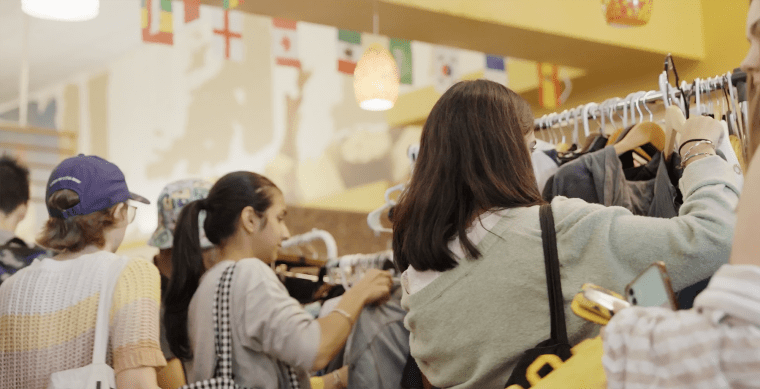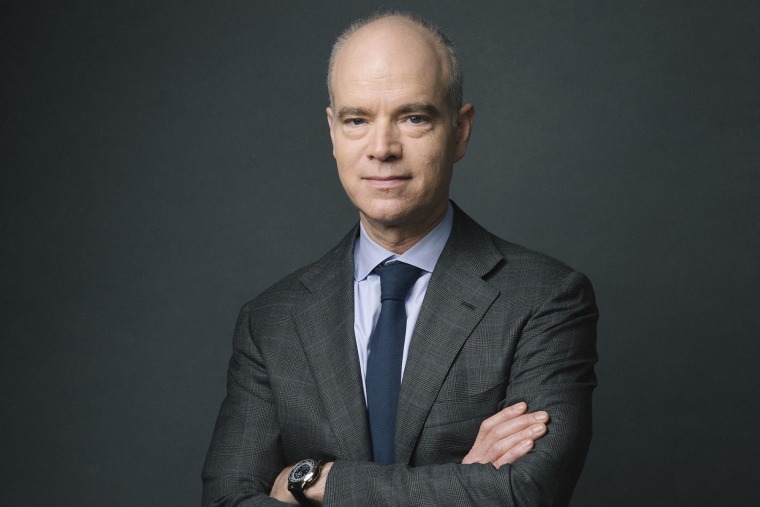College swap shops are a hit with undergrads and good for the environment

It’s back to school for millions of college students across the country. But one unintended consequence of those returning scholars is the up to 640 pounds of trash the average college student produces each year, the majority of which accumulates at the end of the academic year while moving out, according to one study.
Do the math and then consider just how quickly those household items and dorm supplies — made of plastic, glass or synthetic fabrics that take years to naturally break down in landfills — contribute to the overall waste problem across the country.
But for a few days in late August, one student-led program at New York University took aim at the dilemma, providing its student body with essential items via its first ‘swap shop.’ The shop gave students access to gently used items ranging from clothes, mirrors and lamps to dorm furniture free of charge.
“I think it’s hard enough to be a student, it’s expensive enough,” student volunteer Hanin Amer said.
Over the course of a few days, more than 1,800 students showed up and had access to donated items, including about 155 microwave ovens. While not obligated to contribute anything to access the items, they were encouraged to donate if possible.
All that was left by the time the dust settled were a couple of mini refrigerators, a stack of crutches and a handful of clothes.

Similar initiatives have been launched at Colgate University, Oberlin College and The University of Minnesota Duluth.
“Not all NYU students are coming from the same context, the same economic backgrounds, and so there are a lot of students and families that really appreciate initiatives like the swap shop, because it’s … alleviating a lot of the stress that comes with higher education already,” Amer added.
NYU students got word about the pop-up project via a TikTok with almost a million views that brought in a large crowd of treasure hunters.
Cecil Scheib, NYU’s chief sustainability officer, said the ambitious project took months of planning.
“In the spring and all summer, we were collecting items, cleaning them, getting them sorted and labeled and ready to give away. We have tens of thousands of pounds of items,” he said.
Scheib said the entire concept is to divert college dorm items that would have been sent directly to landfills.
“Our generation was kind of born into an anxious climate, knowing what previous generations have sort of done,” Amer said.
She told NBC News a project like this shows that younger generations are “putting matters into our own hands. And rather than making it an individual responsibility, it’s a collective responsibility, it’s about the community.”
Belle Mbaezue, president of NYU’s Future Fashion Club and a volunteer with the swap shop, has been leading sewing workshops and mending classes inside the shop to pass on sustainability skills to the student body.
She told NBC News she hopes this is just the beginning. “We are totally looking to open it up to the entire New York community …sustainability is not just about one person, it’s about everybody. So this was just a pilot project to test the success of it and all the operations,” she said.
“It went really well, and we are looking to have something more permanent. So with that, we can open up the weekends to the community, and have one month a day per the community. We’re already considering that,” Mbaezue added.
Scheib said he hopes that this sends a message to both the city of New York and the rest of the country.
“There will be people who will look at this and say, ‘I see mountains of trash. How can one small store make a difference?’ And my answer is, those mountains of trash came from each of us individually making the decision that made sense in this moment,” he told NBC News.
“It’s easy to throw it away than to find a place to reuse it. We can get out of this problem the same way we all have to do our little part. People feel their little part doesn’t add up, but it does.”





